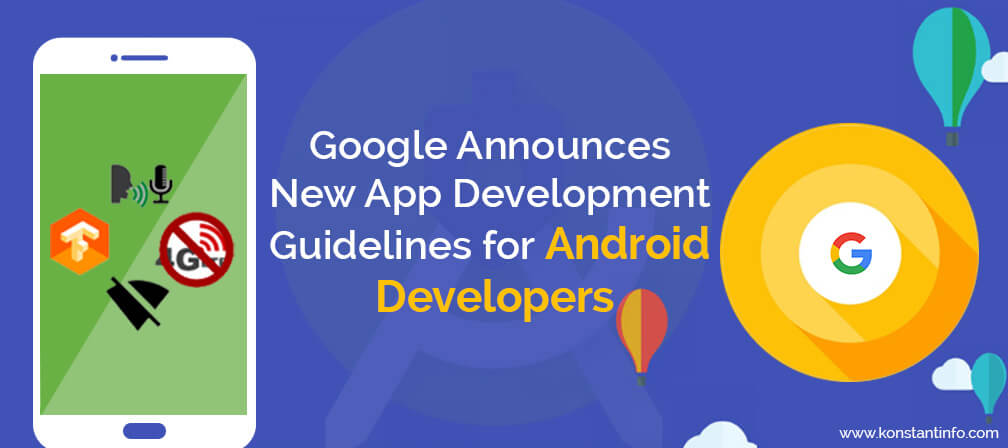
Android and iOS seem to be locked in an eternal battle for the high throne of the mobile platform, and the more each of them undergoes splendid improvements, the intensifying this battle becomes. Android, for its part, boasts a massive number of users, an open and highly customizable platform, and of course, the long list of features. But every time a comparison is drawn between Android and iOS, it always falls short on two parameters- security and fragmentation. Now with the latest guidelines for Android developers, Google is attempting to plug those two loopholes.
To clarify, these guidelines are not advisory. So, every Android app development company must get their house in order to implement these changes in the prescribed time frame. Here is everything that’s about to change:
Every year, Android comes out with a new version that not only brings improved performance and new features but also implements many security and privacy measures- all of which can be incorporated only if developers target the latest API in their application.
While until now, it was only desirable that developers use the latest API, it has now been made mandatory.
The existing apps that are no longer receiving updates will remain unaffected by this change. Also, while the target API level has been prescribed, developers are free to choose the minimum SDK version for backward compatibility.
Google launch support for 64-bit architecture more than three years ago with Android 5.0 and today, over 40% of the devices online have transitioned for 64-bit support. The architecture is known for its improved performance and additional memory and instructions that make it easier to incorporate complex functionalities.
As 64-bit architecture is indisputably the future of mobility, Android is now mandating that all new apps and app updates with native libraries must also submit a 64-bit version along with 32-bit version. This can be either within a single APK or they can also publish multiple APKs for different versions.
This, however, doesn’t mean that Android is ending support for 32-bit, it will continue supporting them. It’s just that they wish to be future-proof.
Also, this change came into effect in August 2019 and doesn’t apply to applications that do not include native libraries.
This is a small change that Google has introduced in early 2018 and is only meant to be informative because the developers do not need to take any action for its implementation. It will start adding a small amount of metadata on top of each application to confirm its authenticity and source of distribution.
The developers need not worry about its implementation because the store will automatically adjust the maximum APK size to account for this addition and it will be added to APK signing block, thus ensuring that it doesn’t affect the functionality in any way.
Also read: How Much Does It Cost to Develop an Android App?
As discussed in the beginning, all these changes are essentially aimed at creating a consolidated and secure platform- the benefits of which, both users and developers will reap in the future. So, if you are looking to hire Android developers, add these two changes in your checklist to ensure your application remains relevant for a long time to come. As for us, most of these suggested measures are already part of our development practices and if you want the same to be incorporated into your Android app, get in touch now.



Mrityunjay is a content developer at Konstant Infosolutions- a leading mobile app development firm that caters to enterprises of all scales and industries with cutting-edge tech solutions. Being an engineer by education, a reader by passion, and a writer by profession, he finds no topic truly boring, yet nothing seems to content his craving as well- an essence he leaves in everything he writes.
Or send us an email at: [email protected]